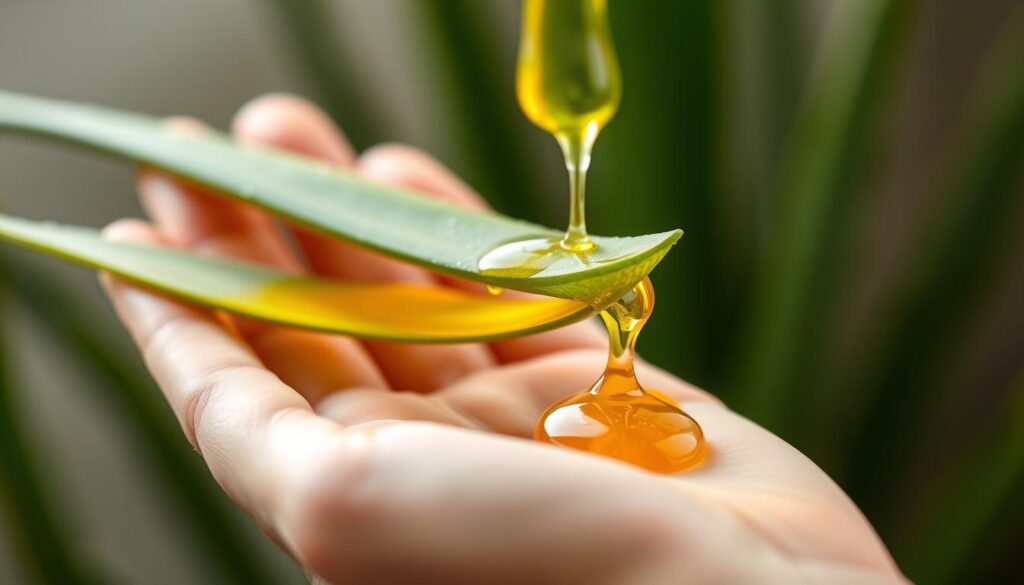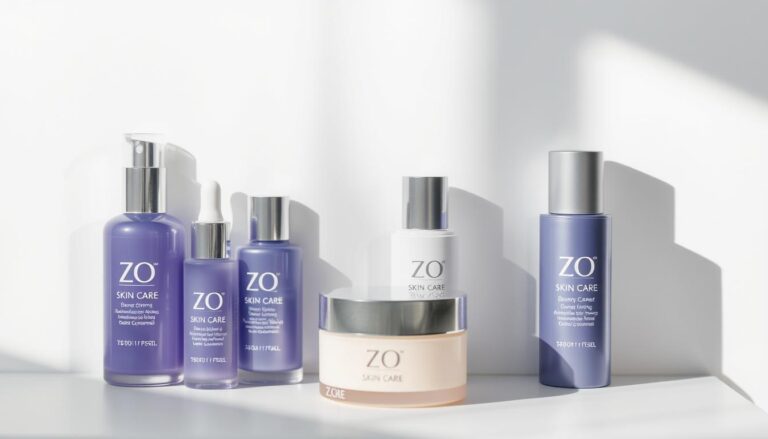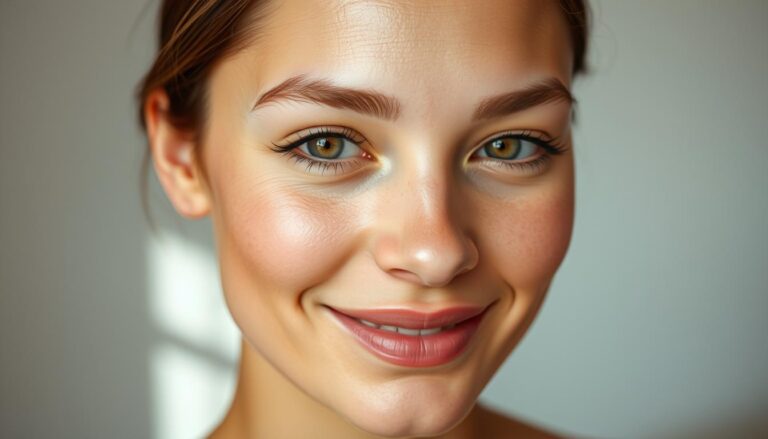Skin Diseases: 5 Best Home Remedies for Clearer Skin
Table of Contents
Living with skin diseases can be tough. The itching, redness, and worry about your skin can make you feel down. But, learning about your skin and finding home remedies can change your life.
Dermatology gives us tools to handle many skin issues. Conditions like acne and eczema affect many people. While doctors are key, home remedies can also help a lot.
This guide will show you simple ways to deal with skin problems. We’ll look at home treatments backed by science. They can add to your skincare routine and lessen symptoms of different skin diseases.
Key Takeaways
- Home remedies can provide relief for various skin conditions
- Natural treatments can complement professional dermatology care
- Understanding your skin’s unique needs is crucial for effective management
- Consistent skincare routines can help prevent and manage skin diseases
- Holistic approaches combining diet, lifestyle, and natural treatments work best
To maintain the safety and beauty of your mouth, you can use this nutritional supplement
Understanding Common Skin Diseases and Their Symptoms
Skin conditions can really affect your life. They can make you uncomfortable and upset. Knowing about common skin diseases helps you spot problems early and get the right treatment.
Types of Skin Conditions
Many skin diseases affect a lot of people in the U.S. Some of the most common include:
- Acne: Hits about 50 million Americans every year
- Eczema: Affects 10-20% of kids and 1-3% of adults
- Psoriasis: Found in 2-3% of the world’s population
- Rashes: Can come from many things, like the environment or health issues
Recognizing Warning Signs
Spotting skin problems early is key to managing them well. Look out for these signs:
- Persistent redness or swelling
- Unexplained itching or scaling
- Changes in skin texture or color
- Unusual growths or patches
When to See a Dermatologist
Seeing a doctor is important when you notice:
- Symptoms that last more than two weeks
- Severe itching that interferes with daily life
- Signs of possible infection
- Quick changes in your skin’s look
Remember, about 30% of chronic skin issues might mean there’s something bigger going on.
Good skin care and seeing a doctor early can stop problems and make your skin healthier.
To maintain the safety and beauty of your mouth, you can use this nutritional supplement
Essential Skin Care Habits for Disease Prevention
Keeping your skin healthy is more than just washing it. Dermatologists say you need a strong skincare routine. This routine should cover many skin health areas. Your daily actions can greatly lower the chance of skin diseases and fungal infections.
Important prevention steps include:
- Daily sun protection with SPF 30 or higher
- Consistent gentle cleansing
- Regular moisturizing
- Maintaining proper hydration
- Eating a nutrient-rich diet
Understanding your skin’s needs is the first step. 90% of all skin damage is caused by the sun. So, protecting your skin from the sun is key. Wear clothes that cover you, use sunscreen, and stay out of the sun when it’s strongest.
How you live affects your skin. Exercise boosts blood flow, which feeds your skin. Sleeping well and managing stress also helps. Don’t smoke and drink less alcohol, as they harm your skin and make it more prone to infections.
What you eat matters too. Eat foods full of vitamin C, complex carbs, and proteins. These help fix your skin and keep it strong against infections and other problems.
Remember: Prevention is always easier than treatment when it comes to skin health.
Natural Remedies with Olive Oil and Coconut Oil
Looking into natural solutions for skin issues can help a lot. Olive oil and coconut oil are great for your skin. They can change how you take care of your skin.
Creating Effective Oil-Based Treatments
Natural oils can really help with skin problems. Here’s how to use them well:
- Choose cold-pressed, virgin oils for the best results
- Always do a patch test before using them fully
- Keep oils in cool, dark places to keep them fresh
Benefits of Olive and Coconut Oils
These oils are good for your skin in many ways:
| Oil Type | Key Benefits | Recommended Use |
|---|---|---|
| Olive Oil | Rich in vitamins A, D, E, K | 2-3 times weekly |
| Coconut Oil | Anti-inflammatory properties | Daily moisturizing |
Precautions and Best Practices
Even though natural oils are good, use them carefully:
- Start with a little to see how your skin reacts
- Don’t use them on broken or very sore skin
- Talk to a dermatologist if your skin problems don’t go away
Note: People with coconut or nut allergies should not use these treatments. They should get advice from a doctor.
Power of Honey and Aloe Vera for Skin Health

Discover the amazing healing power of honey and aloe vera for skin diseases and rashes. These natural ingredients have incredible properties that can greatly improve your skin health. They can also help with many dermatology issues.
Honey is a natural remedy with amazing benefits for your skin. It has strong antimicrobial properties, making it great for treating many skin conditions. Studies show honey can:
- Reduce acne-causing bacteria
- Minimize skin inflammation
- Protect against free radical damage
- Promote faster wound healing
Aloe vera adds to honey’s healing powers with its own special traits. Composed of 98% water, it deeply hydrates without feeling greasy. It has compounds that:
- Help prevent acne
- Reduce inflammation
- Boost skin cell production
- Improve collagen synthesis
Using both honey and aloe vera together can be even better for your skin. They work together to manage skin diseases, soothe rashes, and improve overall skin health. Always do a patch test and talk to a professional if you have ongoing skin issues.
Avocado and Oatmeal Masks for Skin Treatment
Natural ingredients can be powerful allies in managing skin conditions like eczema and psoriasis. Avocado and oatmeal masks offer a gentle, effective approach to soothing irritated skin and promoting healing.
DIY Mask Recipes for Healthy Skin
Creating your own skin treatment mask is easier than you might think. These recipes target specific skin conditions and provide nourishing benefits:
- Avocado Hydration Mask:
- 1 ripe avocado
- 1 tablespoon honey
- 1 teaspoon plain yogurt
- Soothing Oatmeal Mask:
- 1/2 cup ground colloidal oatmeal
- 2 tablespoons plain yogurt
- 1 teaspoon turmeric
Application Techniques for Maximum Benefits
Proper application is key to treating skin conditions effectively. Follow these steps for best results:
- Cleanse your face thoroughly
- Apply mask in gentle, circular motions
- Leave on for 15-20 minutes
- Rinse with lukewarm water
Treatment Frequency and Considerations
| Skin Type | Mask Frequency | Key Benefits |
|---|---|---|
| Dry/Sensitive | 1-2 times per week | Moisture retention, inflammation reduction |
| Oily/Combination | Once per week | Balancing skin oils, reducing redness |
| Eczema/Psoriasis | Consult dermatologist | Personalized treatment plan |
The natural properties of avocado and oatmeal make them exceptional for addressing various skin conditions. Avocado oil stimulates collagen production and provides deep hydration, while oatmeal soothes inflammation and supports the skin’s protective barrier.
Sun Protection and Skin Disease Prevention

Keeping your skin safe from UV radiation is key to avoiding melanoma and other skin cancers. Dermatologists stress that too much sun can harm your skin. So, protecting your skin every day is very important.
Knowing how to protect yourself from the sun can lower your risk of skin cancer. The Centers for Disease Control and Prevention suggest several sun safety tips:
- Use broad-spectrum sunscreen with SPF 30 or higher
- Apply sunscreen 15 minutes before sun exposure
- Reapply sunscreen every two hours
- Wear protective clothing with UV protection
The UV Index is very important for sun protection. When it’s 3 or higher, you need to be more careful. The sun’s strongest rays are between 10 a.m. and 4 p.m. during daylight saving time.
| Sun Protection Strategy | Effectiveness |
|---|---|
| Broad-spectrum Sunscreen (SPF 30+) | Blocks 97% of UVB rays |
| Protective Clothing (UPF 50+) | Blocks up to 98% of UV radiation |
| Wide-brimmed Hat | Reduces facial sun exposure by 60% |
Pro tip: Pick clothes with tight weaves and dark colors for better UV protection. Dark colors soak up more UV rays, adding extra protection against skin damage.
“Prevention is always better than cure when it comes to skin health.” – Dermatology Research Institute
Children and people with sensitive skin need extra care. Babies under six months should stay out of direct sunlight. Young kids also need special sun protection.
Diet and Lifestyle Impact on Skin Conditions
Your diet and lifestyle are key to managing skin diseases and keeping your skin healthy. What you eat and how you live can greatly affect conditions like acne and other skin issues.
Nutrient-Rich Foods for Skin Health
Some foods can help your skin fight off diseases and reduce swelling. Add these nutrient-rich foods to your meals:
- Fruits and vegetables full of antioxidants
- Whole grains with complex carbs
- Lean proteins for skin repair
- Omega-3 fatty acids from fish and nuts
Lifestyle Factors Affecting Skin
Managing skin diseases is not just about food. Your daily habits also play a big role. Certain lifestyle choices can make skin conditions better or worse.
Important lifestyle factors include:
- Sleep quality: Good sleep helps your skin heal
- Stress management: Too much stress can make your skin inflamed
- Regular exercise: It boosts blood flow and skin health
A balanced diet and lifestyle can greatly lessen the severity of skin diseases and improve your skin’s condition.
Research suggests that a Mediterranean diet, rich in plant-based foods, may help with skin conditions like psoriasis. Also, eating foods with low glycemic load and probiotics can improve acne symptoms, studies show.
Stress Management for Healthier Skin

Stress can harm your skin, making conditions like eczema and psoriasis worse. It’s important to know how stress affects your skin health. This knowledge helps keep your skin clear and glowing.
Research shows stress affects skin conditions a lot. About 50% of people with eczema say stress is a big problem. Also, 70% of those with psoriasis blame stress for their flare-ups.
- Increased cortisol levels can boost skin oil production by up to 25%
- Chronic stress breaks down collagen and elastin
- Stress weakens the skin’s protective barrier
To fight stress-related skin problems, try these tips:
- Practice daily meditation – even 10 minutes can reduce stress hormones
- Engage in regular physical exercise
- Maintain a consistent sleep schedule
- Use journaling for emotional processing
Your diet is key in managing stress and skin health. Eating foods high in omega-3 fatty acids can cut inflammation by 30%. This might help your skin conditions. Also, aim for 2½ hours of moderate exercise a week. This can lower stress by 20-30%.
Remember: Your mental well-being directly influences your skin’s appearance and health.
By using these stress management tips, you can lessen stress’s impact on your skin. This promotes overall wellness.
Gentle Cleansing and Moisturizing Techniques
Healthy skin needs careful cleaning and moisturizing. Good skin care stops many skin diseases. It also lowers the chance of rashes and irritation.
Understanding Proper Cleansing Methods
Your skin’s health depends on gentle, effective cleaning. Experts suggest these steps for the best skin:
- Use lukewarm water to prevent stripping natural oils
- Choose mild, fragrance-free cleansers
- Limit bath or shower time to 5-10 minutes
- Pat skin dry instead of rubbing
Selecting the Right Moisturizer
Choosing the right moisturizer is key for skin health. Follow these tips for picking a moisturizer:
| Skin Type | Recommended Moisturizer | Key Ingredients |
|---|---|---|
| Dry Skin | Cream-based | Hyaluronic acid, ceramides |
| Oily Skin | Lightweight, non-comedogenic | Salicylic acid, glycerin |
| Sensitive Skin | Fragrance-free | Aloe vera, chamomile |
Pro tip: Apply moisturizer right after bathing to keep moisture in. This can boost skin moisture by up to 50%.
Remember, gentle and consistent skin care fights common skin problems. Listen to your skin and adjust your routine as needed.
Tea-Based Remedies for Skin Inflammation
Tea is a powerful tool for managing skin issues. Studies show oolong tea can greatly improve skin health. In fact, 63% of people saw positive changes after just one month.
Green tea and other teas have strong antioxidants. These can fight fungal infections and reduce inflammation.
Dermatologists suggest tea as a natural skin care option. A 2019 study on black tea dressings showed quick improvements in skin health. Oolong tea drinkers had three servings a day. They steeped a 10-gram teabag in 1000 milliliters of boiling water for five minutes.
To use tea remedies, make simple compresses or rinses. Tea tree oil and green tea can soothe irritated skin. Always do a patch test and start with small amounts to avoid irritation.
Tea-based treatments are a natural way to support skin health. They can reduce redness and fight fungal infections. But, if your skin issues don’t get better, talk to a doctor.
FAQ
What are the most common types of skin diseases?
Common skin diseases include eczema, psoriasis, and acne. Fungal infections and various rashes are also common. Each condition may need different treatments, from over-the-counter remedies to professional care.
How can I tell if a skin condition requires professional medical attention?
See a dermatologist if you have unexplained rashes or severe itching. Also, if your skin color or texture changes, or if you notice unusual growths. Look out for signs of skin cancer like asymmetrical moles or changing skin lesions.
Are natural remedies effective for treating skin conditions?
Natural remedies can help with mild skin issues and improve overall skin health. Ingredients like olive oil, coconut oil, and honey can soothe and moisturize the skin. But, they shouldn’t replace medical treatment for serious conditions.
How important is sun protection in preventing skin diseases?
Sun protection is key to prevent skin cancer, especially melanoma. Use sunscreen with at least SPF 30, wear protective clothes, and avoid sun during peak hours. Regular skin checks are also important to catch any damage early.
Can diet and lifestyle affect skin health?
Yes, what you eat and how you live can affect your skin. Eating nutrient-rich foods, staying hydrated, sleeping well, managing stress, and exercising regularly can improve your skin. These habits help reduce inflammation and support healing.
What role does stress play in skin conditions?
Stress can make skin conditions like eczema and psoriasis worse. It increases inflammation and can disrupt the skin’s barrier. Managing stress through meditation, exercise, and sleep can help improve your skin.
How often should I cleanse and moisturize my skin?
Cleanse your face twice a day and moisturize right after. Choose products that fit your skin type and avoid harsh chemicals. For specific skin issues, get advice from a dermatologist.
Are tea-based remedies effective for skin inflammation?
Teas like green tea and chamomile can soothe skin irritation and help with fungal infections. But, they should be used alongside medical advice, not instead of it.
What are some preventative measures for skin diseases?
To prevent skin diseases, keep a consistent skincare routine and protect your skin from the sun. Eat well, stay hydrated, manage stress, sleep enough, and avoid irritants.
When should I be concerned about a skin growth or mole?
Watch for skin growths that change size, shape, or color. Look for irregular borders or multiple colors. Use the ABCDE rule for moles: Asymmetry, Border irregularity, Color variation, Diameter larger than 6mm, and Evolving appearance. See a dermatologist if you notice any of these signs.







